"If you've got a politician that's running for office who thinks he's smarter than 98% of the world's climate scientists, they're crooks. Or, they're dumbasses." That's Patagonia's Yvon Chouinard in the upcoming film CO₂LD Waters, for which the trailer was released yesterday. CO₂LD Waters documents the importance of climate change to anglers, the threat it poses to our fishing and hunting opportunities and what we, as anglers, can do about it.
The film features some of the angling community's best known voices and influences, including the aforementioned Chouinard, Craig Matthews, Tim Romano, Steve Hemkens and Todd Tanner.
In the trailer, Tim Romano notes, "As a community of anglers, hunters and outdoors-people, we are a powerful voice and we can change things," adding that it is time for the angling community to "Speak up." And that seems to be the mission behind CO₂LD Waters, motivating us as anglers to be heard, to protect what we hold most dear against those who seek to take it away from us, and to stand up for our children and grandchildren.
Romano is correct - but it is important to recognize just how correct he is. The fishing and hunting community possesses an enormous amount of power. According to a 2011 US Fish and Wildlife survey, the number of anglers and hunters in the US totals 37.4 million individuals, 33.1 million of which are anglers. To put that in perspective, the sporting community is larger than policy-affecting "powerhouses" such as the AARP (37 m), the NEA (3.2 m) and the NRA (5 m).
Despite examples set by these public-sector interest groups, especially the hunting and angling-familiar NRA -- who has demonstrated repeatedly how a relatively small group of motivated individuals can have sweeping impacts on public policy -- the long-standing problem with anglers and hunters across the US is that we rarely leverage the enormous power we wield. Or, worse yet, we act directly against our own best interests.
Conservation Hawks' Todd Tanner notes, "The science on climate change is incredibly clear in that we're causing it, and that's having an impact. We've got the technology but what we need now is the leadership, because if this gets away from us, it takes everything else away. And for whatever reason, we don't see that clearly. At least we're sure not acting like it." Matthews adds, "without cold clean waters, we don't have trout. If we let that slide, we've failed."
The trailer closes with a quote from Albert Einstein which reads, "Those who have the duty to know, have the duty to act." And that truly is the duty that we have as anglers -- to ourselves and to future generations -- to recognize what we know and act upon it, instead of being compelled by rhetoric and ideology to wrongly defend those whose greed and shortsightedness stands to forever rob of us our heritage.
In the words of the oft-quoted Teddy Roosevelt, "Defenders of the short-sighted men who in their greed and selfishness will, if permitted, rob our country of half its charm by their reckless extermination of all useful and beautiful wild things sometimes seek to champion them by saying the 'the game belongs to the people.' So it does; and not merely to the people now alive, but to the unborn people. The 'greatest good for the greatest number' applies to the number within the womb of time, compared to which those now alive form but an insignificant fraction. Our duty to the whole, including the unborn generations, bids us restrain an unprincipled present-day minority from wasting the heritage of these unborn generations. The movement for the conservation of wild life and the larger movement for the conservation of all our natural resources are essentially democratic in spirit, purpose, and method."
CO₂LD Waters is an official selection of the 2015 Fly Fishing Film Tour (F3T). View the trailer below. The full film will debut in January on the F3T. Learn more at co2ldwaters.org.

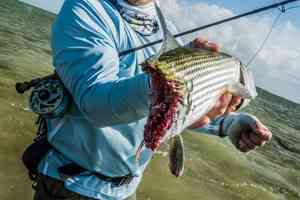
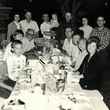



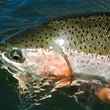
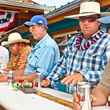




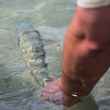
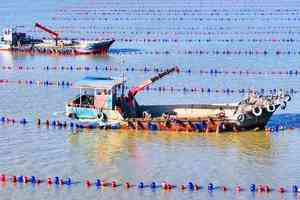
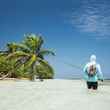

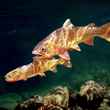
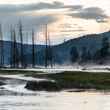


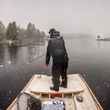
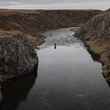



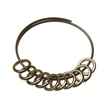
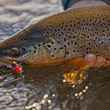
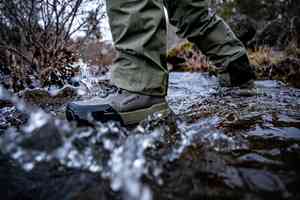
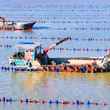
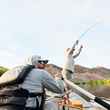

Comments
DDon replied on Permalink
Good to see prominent anglers speaking up.
Hopefully it will wake up the masses who evidently think tar sands are more important than trout water.
Scott Schwarting replied on Permalink
I'm afraid the human greed of the masses will win the day. It almost always does.
Todd Tanner replied on Permalink
Kudos to Chad, and Hatch, for telling it like it is - and for being an official supporter of the upcoming CO2LD WATERS movie. We need to stand tall and speak up about climate change. Many thanks to Hatch for doing just that, and for showing us what real leadership looks like.
Chad Shmukler replied on Permalink
Thanks Todd, it's a privilege to help support such a project.
Nathaniel Bergman replied on Permalink
Hi,
I'm a professional river scientist, occasionally doing work with climate related data and working with local biologists on river restoration voluntarily. And an avid fly fisherman for 12 years but more than 35 years fishing around the world (I'm 42 years old).
While climate change is real, fishermen priorities should be different. It's habitat loss that we should concentrate on as a lobby, the fact that invasive rainbow and brown trout are "naturalized" on the expense of cuts and brooks and aging dams that could be decommissioned are not. The fact that federal
agencies are releasing trout to places they should not be in the first place, with the blessing of local and regional fishing clubs + keeping hatcheries for this purpose is disturbing, not to mention egocentric.
We have the scientific) knowledge today to know what's wrong and what's right but we choose as a community to have "great fishing" rather than natural landscapes. The fact that in Yellowstone National Park I'm being asked to kill rainbows and release the cutbows and cuts, release Atlantic salmon in the Great Lakes while catching pacific salmon and steelheads is our failure as a community. Great fishing now on the expense of destruction of the rivers as ecosystems.
This is where we could change things - to tell federal agencies and TU that we don't support release of non-native fish. That hatchery fish are inferior to wild fish and that every release is wrong and it must stop asap.
While as stated above I'm a fisherman myself, we are definitely complicit in environmental crimes so that makes us crooks and dumbasses just like the politicians that don't care what legacy we leave behind to next generations.
I would appreciate if you publish this response despite that it
is putting a mirror to ourselves and not showing a nice image. Food for thought.
Sincerely,
Nati
Nathaniel Bergman
PhD candidate, Instructor
Department of Geography
The University of Western Ontario
1151 Richmond Street
London, Ontario N6A 5C2
Canada
Scott Schwarting replied on Permalink
Nathaniel,
Thanks for the post, but its contradictory. You state that habitat loss should be the priority, but then go on to speak only about non-native species. That has nothing to do with habitat loss. Habitat re-purposing,yes, but not loss. The rivers in Yellowstone still offer fairly pristine trout habitat, its just that non-natives in inhabiting it rather than strictly natives (excepting the lake trout debacle which is its own situation).
Can you cite examples where non-native species of trout alone have destroyed an ENTIRE river ecosystem? Or just instances where it had a negative impact on a single native species. I guess the the question I'd pose is whether unnatural ALWAYS means unhealthy. I'm not convinced that it does.
I think that climate change and drought pose much more significant threats to habitat loss and the destruction of entire river ecosystems than non native trout species do. Thus, that's where the priority should be.
Jim replied on Permalink
We are learning more about the differences between wild trout and hatchery trout; in genetics and behaviors. In Yellowstone National Park (MT,ID & WY) they are stocking hatchery fish of catch-able size into streams that were supposed to be stocked with fish from nearby streams after the use of rotenone poison. We are losing wild trout in the name of native fish restoration projects. Fisheries managers need to do a better job of this. My primary example is Soda Butte Creek.
Pages